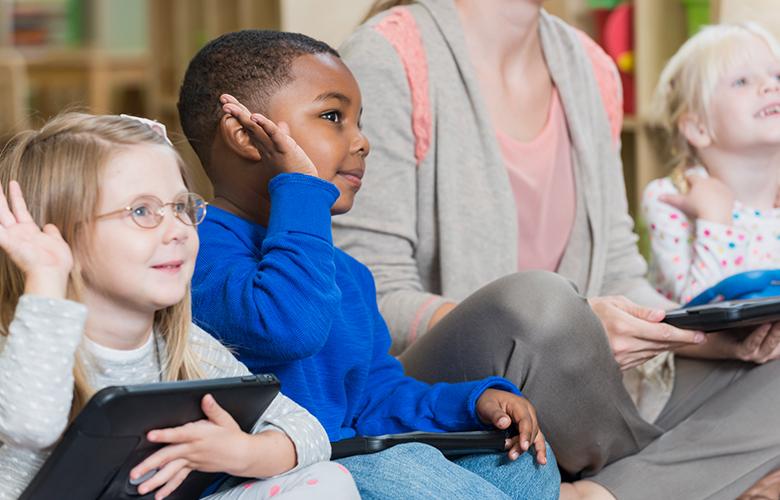
February 27, 2020
EDC’s Center for Children & Technology is celebrating 40 years of researching how education technology (edtech) and media can enhance learning at home, in school, and beyond. In support of Digital Learning Month (February) and Digital Learning Day (February 27), we share four elements that are central to effective digital learning:
- Adults are key. Technology and media are no substitute for good teaching. The possibilities of digital learning tools can only be realized when a caring and knowledgeable teacher or caregiver guides children in exploring technology and media. Read our blog post on how families can support children’s media use.
- Teachers need support. Knowing how to navigate digital tools is very different from knowing how to teach with them. Teachers need professional development, or the technology may just collect dust or be used in ways that isolate learners. Using technology to enhance learning in schools takes time, administrator buy-in, and investment in ongoing support. (For tips on integrating technology into early learning, see Promising Practices and Checklist.)
- Digital tools shine brightest when used to create and connect. We often see students using technology as passive consumers of information. Yet we know learning is a social process, and students are more engaged when learning is based in real-world tasks. Digital resources such as Book Creator and Scratch offer new ways for learners to collaborate on creating content.
- Teachers need the right tools and media. Navigating an edtech marketplace that is flooded with products overwhelms even the most seasoned educators. When possible, we recommend consulting research to make evidence-informed decisions. Our recent article in EdSurge may help.
For more information, check out our recent projects:
- Ready to Learn. Since 2006, CCT has worked in partnership with the Corporation for Public Broadcasting and PBS conducting research and evaluation studies to determine how Ready to Learn public media resources support learning.
- Mission US: Time Snap. Building on the success of the Mission US series, CCT is partnering with WNET and Electric Funstuff to develop a game-based virtual reality platform to immerse high school history students in key moments in history.
- Bringing Home Science with PEEP. Leveraging the popularity of PEEP and the Big Wide World, CCT worked with designers at WGBH to develop and investigate a model that used home visiting programs and joint media engagement to engage parents and preschool children in science exploration.
| Michelle Cerrone is a senior research associate for the Center for Children & Technology (CCT) at EDC. | |
| Naomi Hupert is a senior research scientist and co-leads CCT. |


Add new comment